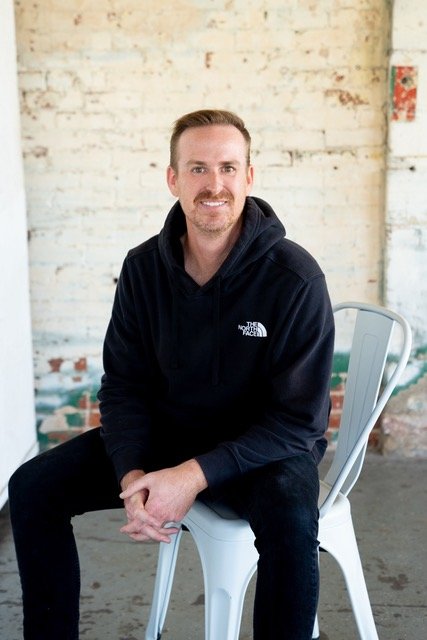the PRE-FLIGHT check list
by Ryan Latham/Lp Coach
Leadership Pathway helps churches design and launch custom leadership residencies centered on coaching through developmental conversations. The plan is fluid, but there is a plan. I was thinking about this and realized it’s a lot like the pre-flight checklist a pilot has.
I recently was boarding yet another fight headed for home after a great week of coaching church leaders. As I was boarding I noticed a huge group that all appeared to be together. It was the family of the pilot. I then realized the plane was decorated up as it was this pilot's last day on the job. He’d flown forty years for one airline and was retiring.I
I did some quick calculations and ascertained he’d probably flown 35,000 routes. Amazing. It was his last flight and I was on it. As I boarded I could see through the window and realized he had his pre-flight checklist book open. If you’ve flown at all you’ve seen this as well.
He was once again going over the same steps he’d done 34,999 times before!
When a pilot prepares for a flight, they don’t just hop into the cockpit, start the engine, and take off. Instead, they follow a strict series of procedures—examining checklists, reviewing flight plans, and communicating with ground control to ensure that everything is in place before takeoff. These steps aren’t just bureaucratic red tape; they are essential for safety, efficiency, and success.
In much the same way, a leadership residency program operates on a structured framework designed to develop leaders who are prepared for the complexities of pastoral leadership. The process of a residency—learning, coaching, and skill development—functions like a pilot’s preflight checklist, ensuring that young leaders are equipped for the mission ahead.
Before a flight, pilots receive a flight plan—an organized roadmap detailing their route, altitude, weather considerations, fuel calculations, and emergency contingencies. This plan serves as a guide for the journey ahead, ensuring a clear direction and minimizing risk.
Similarly, a residency program is built on a structured vision. It’s not just about putting young leaders into a ministry setting and hoping for the best. Instead, there’s a carefully thought-out plan, including developmental conversations, coaching sessions, theological education, and soft skills training. This structured approach ensures that the resident isn’t just thrown into ministry but is strategically guided towards a successful future.
Without a flight plan, a pilot could wander off course or, worse, encounter an emergency without preparation. Likewise, without a clear leadership development plan, young residents can become lost, overwhelmed, or ill-equipped to handle the challenges of full-time ministry.
Every pilot follows a pre-flight checklist—a systematic approach to confirming that all equipment is functional, all settings are correct, and nothing is overlooked. This ensures that no minor detail is forgotten, which could lead to a disaster once in the air.
Residencies operate on a similar principle. Leadership development frameworks rely on best practices, coaching systems, and accountability structures. Residents don’t just show up and “figure it out” on their own. Instead, they are given a step-by-step process to follow, including:
• Weekly coaching meetings to ensure alignment and address challenges.
• Soft skills assessments to help residents grow in emotional intelligence, initiative, and leadership capacity.
• Spiritual formation to maintain a Christ-centered approach to leadership.
• Real-world ministry experience in preaching, leading teams, and shepherding people.
Just like a pilot wouldn’t take off without running through their pre-flight checks, a resident should not be thrust into leadership without proper preparation. The residency framework acts as a safeguard against unnecessary turbulence down the road.
Even with the best flight plan and the most thorough pre-flight checklist, things can still go wrong mid-flight. Unexpected storms arise, turbulence hits, or mechanical failures occur. A well-trained pilot is prepared to adapt and make adjustments in real-time.
Likewise, no residency program can prepare a young leader for every challenge they will face in ministry. Sometimes, unexpected conflicts, staff transitions, personal doubts, or congregational crises arise. The key is learning to adjust in real-time while relying on the real-time coaching that they are receiving.
Residency programs don’t just focus on theoretical leadership concepts; they emphasize hands-on ministry experiences that force residents to navigate real-world situations—leading teams, resolving conflicts, and adapting to changes.
Ministry, like flying, is dynamic. You can’t control everything, but if you’ve trained well and followed the right checklists, you’re equipped to adjust and keep going.
Every flight has an ultimate goal—a safe and successful landing. Everything pilots do, from pre-flight planning to mid-air adjustments, is designed to ensure that they reach their destination safely.
For residents, the goal is not just survival, but thriving in long-term ministry. Leadership Pathway aims to develop pastors who don’t burn out, don’t crash under pressure, and don’t quit too soon. Instead, they are equipped with the tools they need to navigate the complexities of church leadership.
By following a structured residency checklist, they develop the confidence, skills, and spiritual foundation needed to sustain a long-term impact in the church.
I heard someone recently say nothing is built until it is written down. I like that.
Residencies and flight checklists share a common purpose: they provide a clear pathway for success while preventing avoidable failures. Whether in aviation or ministry, leaders who follow the right preparation process are more likely to stay the course and finish well.
Want to know the core ingredients of a Lp residency? Click here to get the free eBook The Must-Have 7 Ingredients of Leadership Development for Gen Z.
Ryan Latham is a coach for Leadership Pathway. He stays on the go with the Slingshot Group and does executive coaching for church leaders through RenewedLeadership.org

